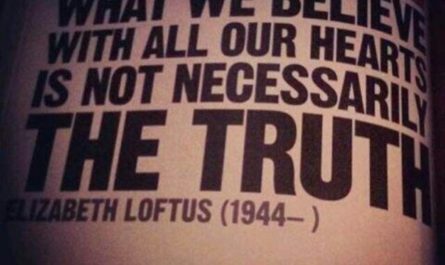 What’s the best thing to do? What’s right? Or what’s kind? It depends on your goal, I suppose. If I’m in a contest that I really want to win… or perhaps must win (to relieve financial stress), then I will definitely put all my efforts into being right.
What’s the best thing to do? What’s right? Or what’s kind? It depends on your goal, I suppose. If I’m in a contest that I really want to win… or perhaps must win (to relieve financial stress), then I will definitely put all my efforts into being right.
But if I have some larger long-term aspiration in mind—like maintaining or improving a relationship, exhibiting leadership qualities, or building a tribe or following—then perhaps I can rationally forego being right for being kind.
“When given the choice between being right or being kind, choose kind.”
~ Dr. Wayne Dyer
Easy to say but not so easy to execute. Why?
Let’s face it. We’re trained to be right. It got us A’s in school. Got us promoted in our job. Made us feel good about ourselves. From a behavioral-psych perspective, we were “operationally conditioned” to pursue rightness (e.g., Do what the experimenter wants and get rewarded).
In an article published in Yourtrueself, Nilish Gupte, PhD., describes these three characteristics exhibited by kind individuals:
- Self-Strength — the ability to overcome our innate desire to impose our will, thoughts, or opinions on others.
- Self-Control — to be able to regulate our emotions of anger, jealousy, or annoyance and instead portray calm, collectedness, and inspiration.
- Self-Care — to value and nurture one’s health, both physical and mental. To be compassionate to oneself and recognize that in order to help others we must be able to be physically, emotionally, and financially strong.
I maintain that kindness has a unique definition. We know and recognize kind gestures. We understand when one defers to another in a discussion. We comfort people whose struggles we recognize.
But how do I define being right? As our discussions of the Knower/Judger over the years might indicate, my perception of what’s right is usually generated by my programming and experiences. Sometimes formal education points me in the “right” direction. And sometimes my rightness is simple, unabashed prejudice. Suffice it to say, most of my perceptions of what’s right are bound up in my K/J set of rules. And as I’ve noted through the years, my K/J rules rarely match up with yours!
Given that, then Gupte’s three characteristics above are a great starting place to practice working beyond the set answers I carry around (my K/J) and develop a healthier reliance on my Learner/Researcher. All three of his characteristics, self-strength, self-control, and self-care, are cornerstones of being present and getting away from my K/J programming.
While the name Karen has unfairly come to refer to middle-aged white women of privilege, it is precisely this name that I now think of when an individual exhibits the need to be right (based on birth order, privilege, etc.). (Sorry to all Karens who rise above this behavior!). We all know what this type of behavior looks like in action (whether by male or female, white or black, or young or old). And most of us can see such behavior as repulsive, unwanted, and overbearing.
Yet buried in my K/J is exactly this mentality. Not because I’m a white, privileged woman, but because I firmly believe in all my picky K/J perceptions (perhaps developed from a white and privileged male experience). I know I have behaved repulsively and been similarly overbearing. And while I felt justified at that moment, in the long run my relationships suffered.
My K/J fully believes there are times and circumstances when, in order to win the day or the exercise, or the sale, or the moment, even when I weigh right vs. kind, right can be the way to go. But I at least owe every such situation a pause in that space to consider an alternative
“Between stimulus and response there is a space. In that space is our power to choose our response. In our response lies our growth and our freedom.” ~ Viktor Frankl




Kim,
Have you read the book,
In Defense of Kindness? I got my paperback copy from Amazon, cheap. An easy read, but not so easy to master.
Highly readable with zillions of appropropiately placed, interesting examples from the author’s Latino life.